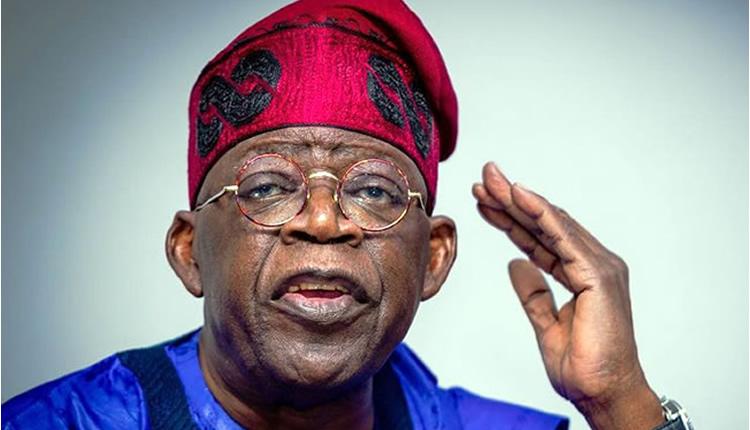
In an unprecedented move demonstrative of his commitment to reposition Nigeria to attain energy sufficiency for national development, His Excellency, President Ahmed Bola Tinubu, GCFR recently assented to the Electricity Bill, 2023 barely few days after his inauguration and assumption of duties as the President and Commander in-chief of the Federal Republic of Nigeria.
The Electricity Bill, 2023 sponsored by Senator ( Dr) Gabriel Suswam, CON, immediate past chairman of the Senate Committee on Power was crafted based on a diagnostic report and recommendations of experts regarding extant statutory and operational challenges confronting the Nigerian power sector since the conclusion of the privatization exercise in 2013. Thus, while the repealed Electric Power Sector Reform Act, 2005 provided the legal and institutional framework for the reform phase of the Nigerian power sector initiated and implemented by the Federal Government between 2000–2013, the Electricity Act, 2023 provides the ideal legal and institutional framework that will guide the post –privatization phase of the industry in Nigeria. The Act seeks to provide the framework that would attract more investors to leverage on the modest gains of the privatized and competitive electricity industry in Nigeria to accelerate growth in power generation capacity and improve utilization of generated power to minimize aggregate value chain loses.
It would be recalled that President Tinubu’s predecessor, President Muhammadu Buhari GCFR had at the twilight of his administration assented to Bill No. 33 which was a constitutional alteration Bill passed by the National Assembly and duly ratified by the requisite number of State Houses of Assembly to remove the lacuna under item F, paragraph 14(b), part II ,Second Schedule to the Constitution of the Federal Republic of Nigeria, 1999. Prior to this constitutional alteration, the legislative powers of State Houses of Assembly over electricity within the various States of the Federation was restricted to “areas not covered by the national grid system within the State” This restriction was counterproductive as it hampered electricity access to many communities and also undermined effective regulation of electricity within states’ boundaries.
It must, however, be clarified that while the Constitutional alteration Bill No.33 assented to by the immediate past President Buhari essentially removed the lacuna that hitherto existed under paragraph 14(b) , part II, Second Schedule to the Constitution to give States of the Federation unfettered powers to make laws for electricity generation, transmission and distribution in every area within the state territory, the Electricity Act 2023 is to serve as a comprehensive statutory framework to guide this new regime of collaborative relationship between the Federal Government and the Federating States in the area of electricity regulation. In this regard, the Electricity Act expressly demarcate regulatory powers between the Federal Government and the Federating States by vesting the Federal Government powers to develop standards for adaptation and implementation by State Governments and regulation of the national grid, transnational and inter-state electricity distribution, while the Federating States are vested with regulation of intra-state electricity generation, transmission and distribution consistent with the provisions of the Constitution of the Federal Republic of Nigeria.
The expected practical impact of the Electricity Act, 2023 is that State Governments can now regulate mini-grids, embedded power, independent electricity distribution networks (IEDN)/ independent electricity distribution networks operators (IEDNOs) and independent electricity transmission networks (IETN)/ independent electricity transmission networks operators (IETNOs) thereby decentralizing electricity regulation and creating huge investment opportunities for private investors in off-grid electricity generation, transmission and distribution. Under the Act, individuals and corporate organizations can generate and distribute electricity in maximum aggregate of 1 Megawatt (MW) and 100 Kilowatts (KW) respectively without a license or permit from regulatory authorities. Successor Distribution companies can also enter into franchise arrangements in order to improve on existing infrastructure and at the same time establish subsidiaries in various States of the Federation for intra-state electricity distribution businesses.
In the area of rural electrification, while the Rural Electrification Agency is retained at the Federal level with clear provisions made for its mandate in managing the Rural Electrification Fund and promoting electricity access to rural, unserved and underserved communities through the use of various renewable energy sources and technologies, States are empowered under the Act to take leading collaborative role with the Federal Government in rural electrification while at the same time mobilizing Local Governments at the State levels to participate in the provision of street lights through the Local Government Rural Electrification Committees all with the sole objective of decentralizing electricity and attracting more investments.
As a further recognition of this new era of collaborative regulation of electricity business between the Federal and State Government, and to ensure policy harmony, the Act, for the first time gives statutory recognition to a body known as the National Power Policy Coordinating Council comprising of representatives of the two levels of Government and other critical stakeholders in the Nigerian power sector. The Council has among other responsibilities the duty of considering and adopting an integrated electricity policy and strategic implementation plan for the approval of the National Economic Council. The resource plan for the sector is to be reviewed every 5 years to ensure alignment in resource planning across the power value chain and responsiveness of government policies in the sector to prevailing realities and exigencies.
Another important point to note is that prior to the enactment of the Electricity Act, 2023, a plethora of legislations relevant to power sector were in existence but not consolidated and with several amendments to each of these legislations, it was usually a herculean task for stakeholders to track these legislations for compliance. With the enactment of the Electricity Act, 2023, all these legislations relating to the Nigerian Electricity Supply Industry (NESI) with all observed post –privatization challenges are comprehensively articulated and addressed. While the consolidation of all electricity related legislations entails their repeal, various agencies such as the Nigerian Electricity Management Services Agency and the Rural Electrification Agency (REA) were retained under the Act while the National Power Training Institute is now establish to address the problem of power challenges in the sector with the Nigerian Electricity Regulatory Commission (NERC) retained as an independent apex regulator of the power sector at the Federal level.
By and large, the Act contains far reaching provisions on a wide range of issues critical to unlocking Nigeria’s full potentials in electricity generation and increased energy access. These include clear provisions on the status of transitional entities such as NBET, provision on unbundling of Transmission Company of Nigeria into a Transmission Service Provider (TSP) and Independent System Operator (ISO), elimination of constraints around tenured licenses, inclusion of transitional provisions that allows NERC to amend licenses to allow existing successor companies to establish subsidiaries for their operation within State boundaries, provisions on business continuity to allow for uninterrupted services in cases of revocation of licenses, provision on the intervention powers of NERC in cases of distress, non –performance and managerial failure, provisions on the operationalization of Power Consumer Assistance Fund(PCAF) and gradual elimination of cross –subsidies, improved funding for rural electrification, consumer protection and prevention of unfair competition, severe punishment against electricity theft and related offences, metering and promoting the contribution of renewable energy to Nigeria’s energy mix. For the first time, provision has been made for generation and utilization of electricity from Nigeria’s abundant renewable energy sources such as solar, wind, biomass, etc with adequate provisions made to incentivize investors and ensure adequate regulatory support in terms of feed in-tariffs and renewable generation and purchase obligations ( RGOs/RPOs).
The Electricity Act, 2023 is therefore an important piece of legislation that would change the fortunes of the Nigerian power sector if properly implemented. The nation should be proud of 9th National Assembly and particularly the sponsor of the Bill, Senator Gabriel Suswam for this monumental legacy. President Bola Tinubu should also be commended for swiftly signing the Electricity Bill into law.
Written by:
Emmanuel Ukera
Fairfields Solicitors













